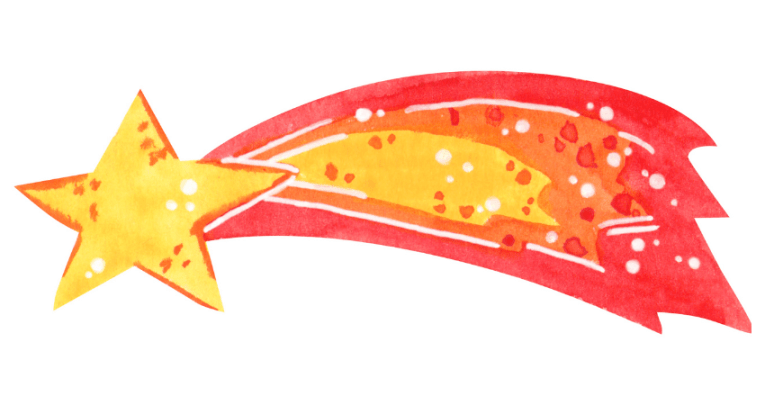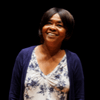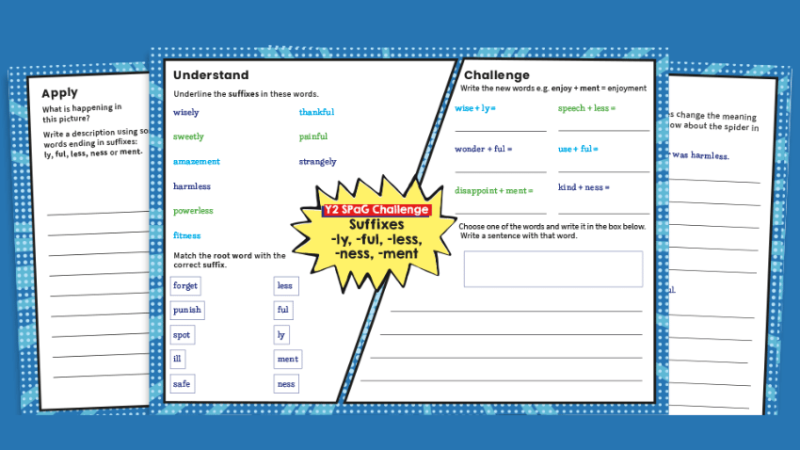Teaching poetry – Valerie Bloom on inspiring your pupils through language

Reading poetry in my mother tongue helped me understand my identity – here’s how to help your pupils value their diversity, too

I started reading aged about four or five, and I began writing more or less at the same time.
What I wrote was very heavily influenced by what I read, so I’d create poems that were pastiches of Wordsworth, Yeats and Keats.
These were the poets we were reading in school, because despite the fact that I was living in Jamaica, we would get books sent over to us from America or England, and as far as I was concerned, that was what life was about.
One of the things I used to do to try and link myself to these Western views was pick little yellow flowers that were growing all around the school.
To me, they were the daffodils from Wordsworth’s poem I Wandered Lonely as a Cloud.
But I had never seen a real daffodil and, in fact, these were nothing like them! I was, of course, trying to make sense of what I was reading by drawing on my own experience and what was around me, but it just wasn’t authentic.
As hard as I tried, the poems didn’t reflect my experiences, and it showed. Later on in school, I was accused of copying an essay by a teacher, rather than composing it myself. I was indignant.
I’d been inspired by things I’d read, but I hadn’t copied! The problem was, I’d written about snow and barns, and the teacher knew we didn’t have these in Jamaica, so she assumed I must have copied it. It just wasn’t my voice. It wasn’t my experience.
Jamaican poetry
Then, I heard about the poet Louise Bennett. She was the first person to write in Jamaican, properly, and her poetry showed me that I could actually write about the things around me in my own language.
That got rid of my identity crisis and helped me to form my voice. Bennett often talked about the fact she wasn’t allowed to speak Jamaican in school; it was fine to speak it at home, but not in public.
For many years, as Jamaicans we’d believed the lie promulgated by our oppressors: that what we spoke was not in fact a language but broken English.
Bennett showed that this wasn’t the case, and that we could be proud of the language we had developed in dire circumstances.
She rebelled in her work, recognising that Jamaican was the language everybody she loved spoke, and therefore shouldn’t be seen as bad language.
Bennett started a revolution which saw national acceptance of and pride in the language.
She was on the radio every lunchtime and all work would stop as people gathered around to listen to her poems and monologues.
When you went into schools in Jamaica, you’d hear children reciting many of her poems in the playground; they’d learn them without being prompted. You wouldn’t get that with other poets.
Learning to love language
Thanks to Bennett, I learned that your language is part of who you are; it’s part of your culture.
When there is stigma attached to it, it reflects on your whole persona, impacts on your self-esteem, and stops you reaching your full potential.
That’s what we have to realise when we talk to children, even now. There are so many different dialects spoken in this country, and it would help us all if we could hear them, understand them and share in them.
This can help give children the all-important confidence in themselves, which helps them to learn everything else.
When they know that their language (and therefore their identity) is valued, they are able to appreciate their own experiences, making them better people.
It also helps develop listening skills, breaks down barriers and develops healthy relationships between those who speak the language and those who don’t.
Whatever the language may be, it’s at the heart of getting to know and understanding one another.
Inspiring pupils
I still see this when I go into schools now. I perform many of my poems in Jamaican, and before I start, I always ask if any of the children speak the language.
Sometimes nobody puts their hand up, but then, when I’ve read a poem like Sandwich or Haircut Rap, I’m surrounded by kids who tell me about mothers, fathers, aunties and cousins from Jamaica.
As I go on to read more poems, their friends start to turn to them, asking them what words mean and so on.
Afterwards, you see them talking about the sounds and phrases they recognise and telling their friends how to say different things in Jamaican.
Suddenly, these ‘othered’ children have status; something to teach and share with their peers.
Sadly, as children get older they can become switched off from language and poetry.
When they’re young, many enjoy and respond to the form, but as they move through school, they’re at great risk of being turned off because of the way it’s presented – often as a rigid and old-fashioned style of writing that we must memorise and recite.
One of the things that’s stuck with me for a long time was an experience I had at a poetry workshop in a school.
After introducing me to a class, the teacher pointed out a particular pupil and said, “Oh that one over there, you won’t get anything from her. She doesn’t do any writing.”
Undeterred, I read my poems in Jamaican and lo and behold the child wrote a beautiful poem in response.
The teacher was so shocked. It turned out the pupil came from a Jamaican background. This was her language and she was able to both write and perform it. All she needed was that spark.
I write what I’ve learned through my life experiences, as most writers do. That’s what this girl had been given licence to do by hearing her voice and her experiences reflected in my work, just as I had experienced with Louise Bennett.
It’s important for children to hear different voices. It helps them relate to other people and it shares that we are all part of one global family.
Each of us brings something different to the table and we can all share in and appreciate what’s there to enrich our own lives, no matter what our mother tongue is.
If you’re interested in broadening the language horizons in your own classroom, the poet videos on the CLPE website offer children the chance to hear work from range of voices and backgrounds, showing the universality of poetry and offering children the chance to see that they all have the potential to share their experiences through poetry, too.
As you write, you bring up the memories that you have, the emotions that you’ve gone through. You learn a lot more about yourself. And I find that with poetry, even now I continue to learn a lot about who I am.
Valerie Bloom MBE is the author of several volumes of poetry for adults and children. Her latest collection Stars With Flaming Tails (£6.99, Otter-Barry Books) won the CLiPPA, CLPE’s Poetry Prize in 2022.










